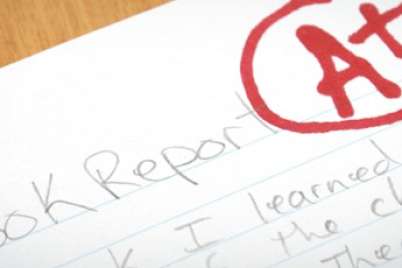
7 active games that develop early reading skills
Give me the opportunity, and I’ll talk your ear off about the importance of reading skills for young children. As a former English teacher, I’ve seen the negative effects that poor reading skills can have on students. Since learning through play [PDF] is one of the most effective ways to teach children, I love combining movement and play with practicing letter sounds and developing early reading skills.
There are a number of tried-and-true games I’ve played with my kids that have helped them develop their reading skills, and I’m here to share them with you. Not only can these games help kids love to read, but they can also help kids love to move their bodies. It’s a win-win situation. Try one of these games when you need some inspiration to get active.
1. Chalk jump
I started playing this game with my daughter when she was able to recognize some letter names and sounds; she was around two years old. The setup is simple: write some letters on the ground with chalk then ask your child to jump to a letter by shouting out either its name or its sound. To help build physical literacy, try asking your child to jump in different ways: 2-legged, 1-legged, right leg, and left leg. Alternatively, kids also enjoy flipping the script and shouting out letters for parents and caregivers to jump to. Before starting this game, especially if your child is younger, it’s helpful to review the letters.
2. Body letters
Stand in front of a full-length mirror and challenge your child to see how many letters they can make with their body. They might curve to form a C or get in a downward dog position to form a lowercase n. Another fun way to play with older kids is to take pictures of each position, and then send them to family members to see how many they can accurately identify. You can also have your child create a letter for you to guess.
3. Letter scavenger hunt
Before playing this game, you’ll need to write some letters on Post-it notes or pieces of paper and hide them around your home or yard. For younger kids, simply allow them to find the letters and bring them back to you, and you can review the letter sounds as they bring them back. Challenge older kids to use the letters they find to spell words.

4. Letter walk
Go for a walk with your child and search for letters along the way. The first person to complete their alphabet wins. Starting with “A,” shout out when you see a letter (look on signs, cars, storefronts, etc.). Each person works to complete their own alphabet, and the first one to be successful wins. This is a fun one because kids are often motivated to continue walking until they finish their alphabet. For younger kids, simply identify any letters you see.
5. Erase the letter
Write letters outside with chalk or with washable markers on pieces of paper. To make the game more challenging, spread the letters far away from each other around the yard. Once you have the game set up, give your child a spray bottle filled with water. Then, call out a letter or letter sound for your child to run to and erase with the water in their spray bottle. This is a particularly valuable game because running around the yard gets them moving, and squeezing the trigger on the spray bottle strengthens the muscles they need to write. Try asking your child to squeeze the spray bottle with both their dominant hand and non-dominant hand to develop strength and physical literacy.
6. Syllable hop
Understanding syllables and how words are broken down is important for literacy. For this game, choose an action for your child to complete, and have them complete that action to count out the syllables in a word. For example, have your child hop during each syllable in the word “crocodile.” Some other actions to try are skipping, spinning, dribbling a ball, or keeping a ball in the air.
7. Home item scavenger hunt
This is another scavenger hunt with a bit of a different take, and it doesn’t require any preparation. In your home or in your yard, ask your child to bring you something that starts with a certain letter. For example, if you say “bring me something that starts with the letter C,” your child might bring you a toy cow. For older kids, you might ask them to bring you something that rhymes with a specific word.

Don’t forget to customize games for your child
There are always ways to make games easier or more difficult for your child depending on where they’re at in their learning. Add more letters, use two-letter sounds (like ch or th) instead of single letters, or use entire words for kids who are more advanced. For kids who are just starting to recognize letters, try only starting with two letters per game, and be sure to review the letters and their sounds before starting. You can even play the game along with your child if it’s too difficult for them. The more you can help your child be successful when playing, the more likely they’ll be to want to play again. They’ll have fun while developing literacy skills along with physical literacy, the ultimate bang for your buck.





